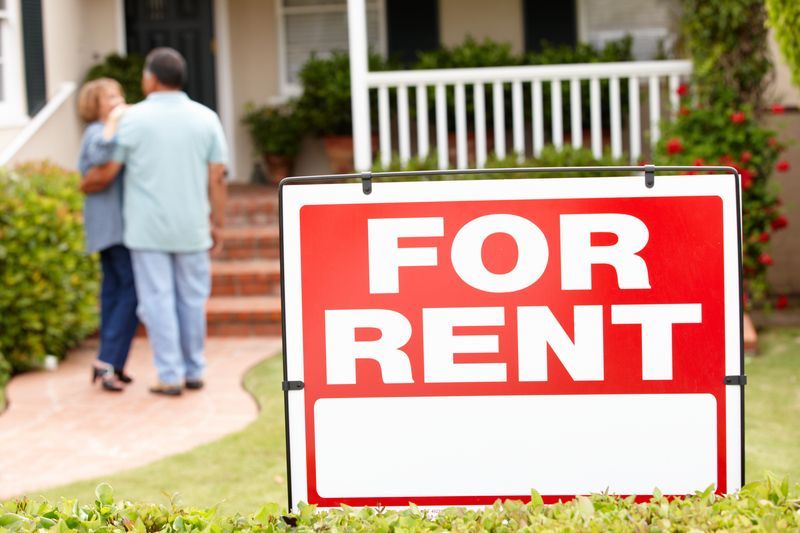Call or Text (916) 460-0606 to get a cash offer on your house!
Trouble with Your Rental? Options for Selling Fast

If you are having trouble with your rental property and want to sell it quickly, there are several solutions available to you. Fortunately, there are several options for homeowners to explore that can facilitate a speedy sale, allowing them to move forward without the burden of an unwanted property.
The Challenges Landlords Face with Troublesome Rentals
Landlords across California, from Sacramento to Elk Grove, understand that rental properties can be a significant investment. They also come with challenges that can transform what seemed like a profitable venture into a troublesome burden. Navigating these difficulties often requires a combination of legal knowledge, financial savvy, and an abundance of patience.
One of the most common issues landlords face is dealing with non-paying tenants. Missing rent payments affect cash flow and can quickly lead to significant financial problems, especially when the property is leveraged with a mortgage. Property damage is another major concern. Whether accidental or due to tenant negligence, it can result in costly repairs and long vacancy periods while the fixes are made. Legal disputes add yet another layer of complexity, ranging from tenant complaints to disputes over property conditions and lease terms that can lead to cumbersome legal proceedings.
Ongoing maintenance and sudden, unexpected repairs are expected aspects of owning rental property, but they can escalate into a financial strain. This is due in part to the unpredictable nature of the costs, which can surface at unfortunate times and may be substantial, depending on the age and condition of the property. Owners often face backlash from renters if they perceive the repairs as too slow or insufficient, further complicating the landlord-tenant relationship.
Another obstacle is navigating tenant rights and eviction laws, which vary by city and state but tend to favor the tenant in California. Evicting a tenant can be a lengthy and expensive process, fraught with legal requirements such as providing the proper notices and possibly attending court hearings. The process can be even more difficult if the rental is in a rent-controlled area where eviction rules are stricter.
Beyond the tangible challenges lie the emotional stress and time investment that come with managing a rental property, especially one that's become problematic. From late-night emergency calls about broken pipes to mediating disputes between tenants, landlords are often on call and must respond promptly to keep their tenants satisfied and their operations running smoothly.
For landlords facing these types of issues in regions like Citrus Heights or Antelope, the challenges of keeping a problematic rental property can be overwhelming. In the face of such hurdles, some are considering an alternative exit strategy: selling their property for cash. This option could potentially eliminate the stress and financial uncertainty associated with troublesome rental properties, offering a fresh start and financial freedom.
Assessing the Rental Property Situation
When troublesome issues become the norm rather than the exception, landlords may need to take a step back and assess the viability of their rental property investment. Evaluating profitability and potential requires a thorough analysis of past performance, current challenges, and future projections—particularly taking into account the rental income, the costs of maintenance and repairs, and the appreciation of the property value over time.
A decisive factor for landlords is understanding when it's time to cut losses. If a property consistently drains resources, whether monetary, emotional, or time-based, it may no longer be a sound investment. Signs that it might be time to divest can include consistent rental income shortfalls, frequent legal troubles, or a cycle of problematic tenants. Even more compelling is if one's life circumstances have shifted, such as changes in financial goals or personal priorities, which could warrant a change in investment strategy.
Conducting a cost-benefit analysis is instrumental in informing the decision to sell. Landlords need to tally all associated costs, not just the obvious expenses like mortgage payments and property taxes, but also less visible costs such as vacancy losses, time spent managing the property, and even potential future expenditures on large-scale repairs or capital improvements. These should be weighed against the expected income from rent and any projected increase in property value.
For those less experienced in conducting such financial analyses, consulting with a real estate accountant or financial advisor could be beneficial. Superior professional advice can offer critical insights, particularly when dealing with complex situations involving tax implications or legal entanglements. Having a clear picture of the financial standing of one's rental property makes the path forward clearer—whether it's deciding to weather the storm, enact major strategic changes, or let go of the property entirely.
Ultimately, the
decision to sell a rental property, particularly one that's problematic, is deeply personal and multifaceted. While some landlords might weather the cycles of property management hoping for a positive change in circumstances, others might view selling as a strategic move to liberate capital for more lucrative investments or to alleviate personal strain. The next step in the process, should selling be the chosen path, is to consider the most effective means of doing so. For some, a traditional real estate market sale might be the right route, while others might consider the advantages of a cash offer—a swift, hassle-free alternative that bypasses many of the troubles associated with problematic rental properties.
Exploring Traditional and Alternative Selling Options
Once a landlord determines that selling their troublesome rental property is the best course of action, the next question becomes how to go about the sale. Traditional real estate listings might be the first option that comes to mind, but selling to cash buyers presents an attractive alternative, especially for properties that have proven burdensome. Traditional listings often entail preparing the home for showings, completing any necessary repairs, and possibly staging the property, all of which require time and money.
In contrast, cash sales often allow for the property to be sold as-is, bypassing the need for costly prep work. The process of finding reputable cash buyers is crucial. While legitimate investors are looking to purchase properties quickly, landlords should be cautious of scams. Thoroughly researching potential buyers, checking for references, and consulting with real estate professionals can help ensure a legitimate and fair transaction.
The Advantages of Selling for Cash
The benefits of a cash sale can be significant. One of the biggest advantages is the speed and simplicity of the transaction. Cash buyers usually aim for a quick close, removing the uncertainty of waiting for a buyer's loan approval. This can be especially beneficial if a landlord is looking to resolve financial disputes or has pressing financial needs that benefit from swift resolution.
Cash sales typically don't involve realtor fees, which can save thousands of dollars. Avoiding the traditional closing process and its associated costs also means more money ends up in the landlord's pocket.
Legal and Tax Considerations When Selling Rental Property
Any property sale requires careful attention to legal and tax considerations. Capital gains tax can take a significant bite out of the profit from a sale, so understanding the implications and planning with a tax professional is advised. Ensuring all legal documentation is correctly handled is critical in providing a smooth transition of ownership and avoiding potential post-sale legal issues.
Case Studies: Landlords Who Chose Cash Sales
Incorporating case studies of landlords who have successfully sold their properties for cash might offer valuable insights. These real-life examples can shed light on the decision-making process, the negotiation of cash sales, and the outcomes of the transaction, highlighting both the risks and the benefits.
Getting Your Property Ready for a Cash Offer
When preparing for a cash offer, landlords should gather all necessary documentation, such as property deeds, rental history, and any records of maintenance and repairs. Being transparent with potential buyers and setting realistic expectations regarding the value of the property is key to a successful sale.
Making the Decision: Is Selling for Cash the Right Move for You?
Finally, landlords must weigh their options and personal circumstances to determine whether a cash offer is the right decision. Considering personal goals, plans, and the overall financial picture will help in making an informed and beneficial choice.
Taking into account the complexities and nuances involved, it's evident that offloading a problematic rental property for cash can be an intricate process. But, with careful consideration and strategic planning, it can also be a financially and emotionally rewarding solution.
If you're facing challenges with your rental property and seeking a quick, stress-free selling option, reach out to Cash for Keys today to kickstart your journey toward a seamless sale.










Getting Started is Easy
Taylor Scigliano
DRE# 02048900
Michael Soares
DRE# 01133186
